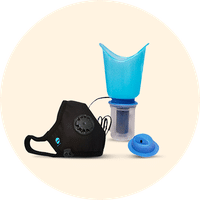food interaction for Betalose Oral Suspension
alcohol interaction for Betalose Oral Suspension
pregnancy interaction for Betalose Oral Suspension
lactation interaction for Betalose Oral Suspension
food
alcohol
pregnancy
lactation
Betalose Oral Suspension may be taken with or without food, but it is better to take it at a fixed time.
None
None
CAUTION
Consuming alcohol with Betalose Oral Suspension does not cause any harmful side effects.
SAFE
Betalose Oral Suspension is generally considered safe to use during pregnancy. Animal studies have shown low or no adverse effects to the developing baby; however, there are limited human studies.
SAFE IF PRESCRIBED
Betalose Oral Suspension is probably safe to use during breastfeeding. Limited human data suggests that the drug does not represent any significant risk to the baby.
SAFE IF PRESCRIBED
SALT INFORMATION FOR Betalose 10gm Oral Suspension
Lactulose(10gm)
Betalose oral suspension uses
{med_name} is used in constipation, intestine preparation before any surgery and hepatic encephalopathy. It may also be used to treats and prevent complications of liver disease (hepatic encephalopathy).
How betalose oral suspension works
Betalose Oral Suspension works by drawing water into the intestine through osmosis, which makes the stool soft and easier to pass.
Common side effects of betalose oral suspension
Abdominal pain, Nausea, Vomiting, Diarrhea
SUBSTITUTES FOR Betalose Oral Suspension
8 Substitutes
8 Substitutes
Sorted By
 Rs. 109pay 4% more per ml of Oral Suspension
Rs. 109pay 4% more per ml of Oral Suspension Rs. 107pay 2% more per ml of Oral Suspension
Rs. 107pay 2% more per ml of Oral Suspension Rs. 107pay 2% more per ml of Oral Suspension
Rs. 107pay 2% more per ml of Oral Suspension Rs. 115pay 10% more per ml of Oral Suspension
Rs. 115pay 10% more per ml of Oral Suspension Rs. 218same price
Rs. 218same price
Expert advice FOR Betalose Oral Suspension
- Lactulose is used in the treatment of constipation and hepatic encephalopathy.
- It should preferably be taken at bedtime as it requires 6 to 8 hours to show effect.
- It is usually taken once a day as needed for up to 2 weeks. Take it exactly as prescribed by the doctor.
- Take it atleast 2 hours after taking other medicines, as it may interfere with the absorption of other medicines.
- Inform your doctor if you have a history of stomach disorders such as appendicitis or a blockage in your bowel.
- Some healthy tips to prevent constipation from happening:
- Eat more fiber in your diet. Recommended daily intake is 20-35g
- Drink 8-10 glasses of water per day
- Exercise regularly at least 3 times per week
- Do not hold in stool as that can worsen bowel issues
- Lactulose is used for the treatment of constipation.
- Some healthy tips to prevent constipation from happening:
- Eat more fiber in your diet. Recommended daily intake is 20-35g
- Drink 8-10 glasses of water per day
- Exercise regularly at least 3 times per week
- Do not hold in stool as that can worsen bowel issues
- Take it atleast 2 hours after taking other medicines, as it may interfere with the absorption of other medicines.
- It should preferably be taken at bedtime as it requires 6 to 8 hours to show effect.
- It is usually taken once a day as needed for up to 2 weeks. Take it exactly as prescribed by the doctor.
- Inform your doctor if you have a history of stomach disorders such as appendicitis or a blockage in your bowel.
Frequently asked questions FOR Betalose 10gm Oral Suspension
Lactulose
Q. How long does it take for Betalose Oral Suspension to work?
It takes about 2-3 days to see the benefits of the treatment. Talk to your doctor if you feel constipated even after 3 days of taking Betalose Oral Suspension.
Q. What is Betalose Oral Suspension used for?
Betalose Oral Suspension is used to treat constipation which is presented as infrequent bowel movements, hard and dry stools. It is also used in patients with hepatic encephalopathy which is a serious liver problem causing confusion, tremors and decreased level of consciousness.
Q. Is Betalose Oral Suspension a laxative?
Yes, Betalose Oral Suspension is a laxative which softens the stools by pulling in water from the body to the large intestine. It is also used to reduce the amount of ammonia in the blood of patients with liver disease.















